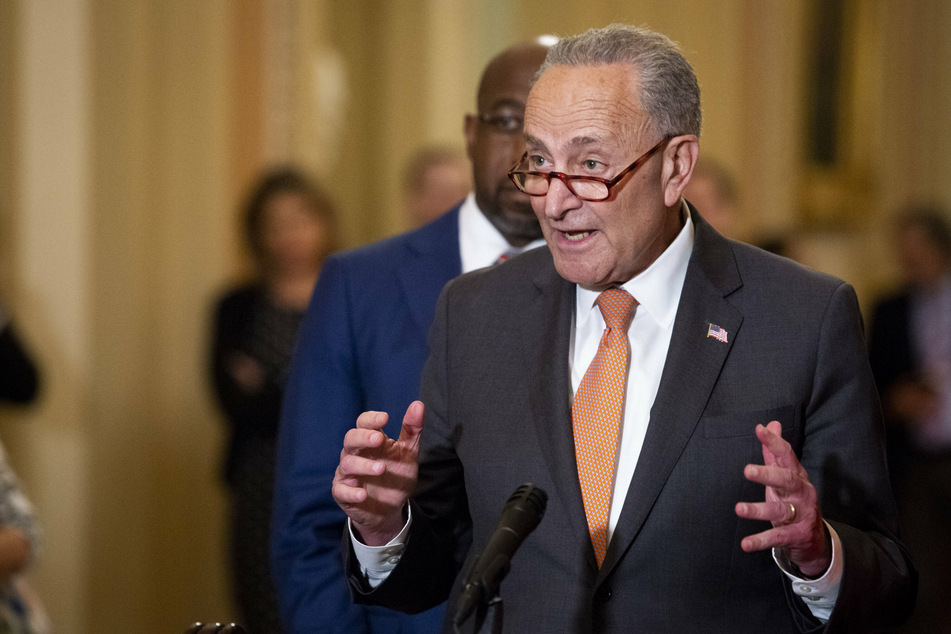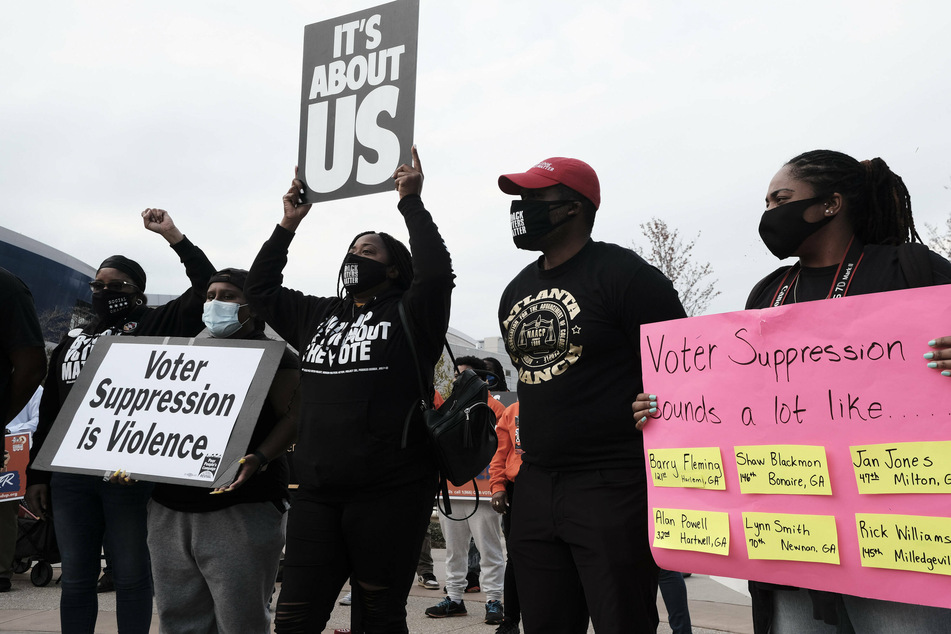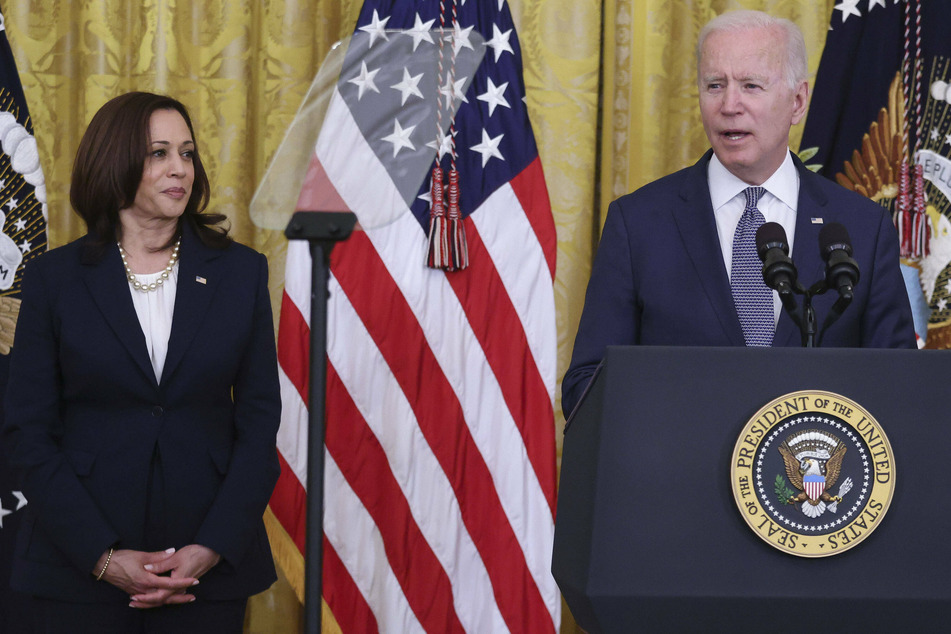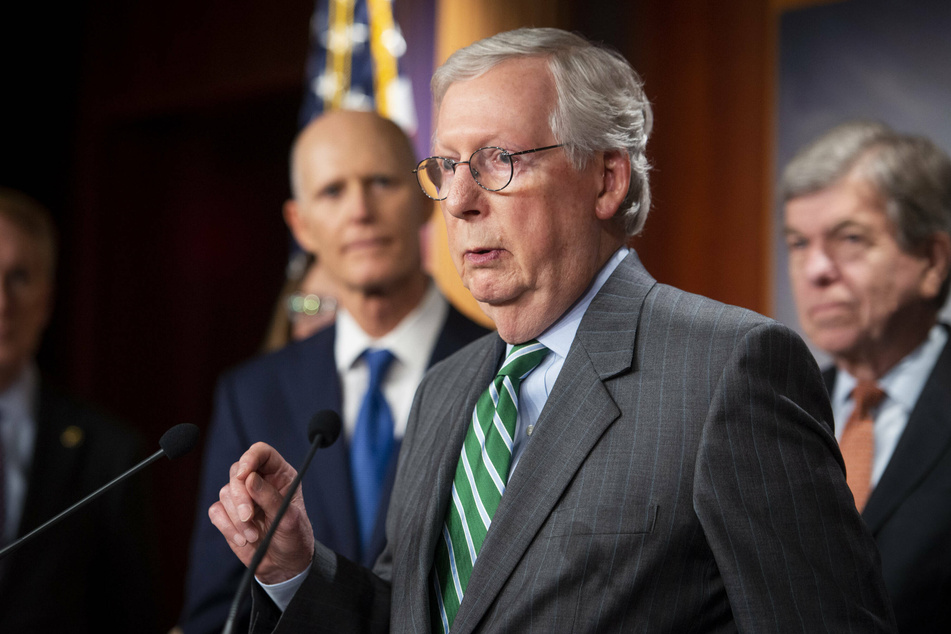For the People Act: Senate Republicans block Democrats' sweeping voting rights bill
Washington DC – Republicans on Tuesday blocked Democrats’ signature election legislation, the For the People Act, a sweeping voting rights and government reform measure.

But with liberal activists priming for a fight, the debate of whether to overhaul how the country conducts elections likely isn’t going to end this week.
The defeat is also likely to renew the debate among Democrats about whether to change the long-standing Senate filibuster rule, which currently gives the Republican party greater power to block legislation.
Senate Majority Leader Chuck Schumer, a Democrat of New York, needed support from 60 senators to bring the bill up for discussion.
In the end, the vote was 50 to 50.
Even some Democrats who voted in favor of advancing the bill Tuesday had remained uncertain about whether they would support a final version.
Senator Joe Manchin, a Democrat of West Virginia, had made clear he didn’t support the bill without revisions, and last week he circulated a list of changes he wanted to see.
Schumer lambasted Republicans, stressing that Tuesday’s vote was just to begin debate on the bill, at which point it could be modified or amended.
"Will our colleagues stand up for what generations of Americans have fought for, marched for and died for?" Schumer said Tuesday before the vote. "Or will they just slink away and say we’re not going to even debate this?"
The minority party loses leverage by allowing the Senate to debate legislation it doesn’t like. It takes a simple majority to pass legislation, a number Democrats can reach on their own, and there is no guarantee that any changes Republicans or moderate Democrats want would have been made to the bill before that vote happens.
Refusing to move legislation can force the majority party to moderate a bill to reach consensus.
Activists are preparing for the filibuster fight

Tuesday’s defeat was expected to reignite debate over changing the filibuster rules, which both parties have used while in the minority to block consideration of legislation they do not like.
It takes a simple majority to change Senate rules, but Manchin, Senator Kyrsten of Arizona, and other Democrats don't want to make such a permanent move.
Dozens of liberal groups are preparing a last-ditch effort to pressure senators to either pass the legislation or get rid of the vote threshold, through television ads, phone banks and rallies nationwide over the July Fourth holiday. Some are lining up to target Democratic lawmakers, including California’s Dianne Feinstein.
Feinstein has previously opposed changing Senate rules to eliminate the 60-vote threshold, but also has signaled that she might consider it over voting rights.
"Our summer of mobilization and grassroots actions to pass this bill will continue. Democracy will prevail. Failure is not an option," Karen Hobert Flynn, president of government watchdog Common Cause, said in a statement.
Supporters criticize Biden and Harris

President Joe Biden has named election reform and voter access a top priority, and recently tasked Vice President Kamala Harris with working on voter rights and access issues. Although she has given speeches and met with supporters, she hadn’t been publicly engaged in whipping up support on Capitol Hill.
Activists’ pressure campaign faces an uphill battle. Biden and Congress are focused on achieving other priorities, such as infrastructure, immigration and a government spending package.
And activists are already showing frustration with Biden for not doing more to rally support. Some progressive members of Congress have added to the chorus.
"Where is the president?" Indivisible founder Ezra Levin said on Twitter on Monday.
"Is saving democracy a priority for this administration or not? I don’t want to see some tepid public statement. We need to see the president and VP using the full force of their bully pulpit to lead."
Indivisible, an activist group inspired by the results of the 2016 election, has organized hundreds of events nationwide to pressure senators in the next few weeks.
The White House formally endorsed the bill Tuesday. White House press secretary Jen Psaki said criticism from progressives aimed at Biden were "a fight against the wrong opponent."
"We share their passion. We share the desire to fight these efforts," Psaki said. "It doesn’t mean that that fight will always be easy, but he is going to stand by them in this effort."
Next steps in the Senate remain unclear

Schumer wouldn’t discuss next steps Tuesday before the vote. Schumer can bring the bill, or another piece of election reform legislation such as the narrower John Lewis Voting Rights Advancement Act, before the Senate again this year.
The bill, which has already passed the House, would set up public financing of federal elections, establish minimum standards for early and absentee polling times and same-day registration, and put nonpartisan panels in charge of redrawing congressional districts.
It also sets ethics requirements for the president and vice president and changes the composition of the Federal Elections Commission, the federal agency that oversees campaign spending.
Democrats say it is necessary to counter the wave of legislation proposed by Republican state lawmakers nationwide since the 2020 presidential election that strips state officials of their power in running elections, makes it easier for legislatures to overturn election results, and sets new hurdles on early and absentee voting.
Fourteen states, including Florida, Texas, and Georgia, have passed new laws on voting, including limiting whether water and food can be legally provided to people waiting in long lines to vote. Dozens more restrictions have been proposed.
Senate Minority Leader Mitch McConnell said the bill – numbered S 1 – was an attempt to nationalize elections in a way that would harm the Republican Party’s chances of winning elections in the future. Congress has authority over federal elections; states have authority over state elections.
"It’s a recipe for undermining confidence in our elections. For remaking our entire system of government to suit the preferences of one far end of the political spectrum," McConnell said Tuesday. "It’s always been a plan to rewrite the ground rules of American politics."
Cover photo: IMAGO / MediaPunch

